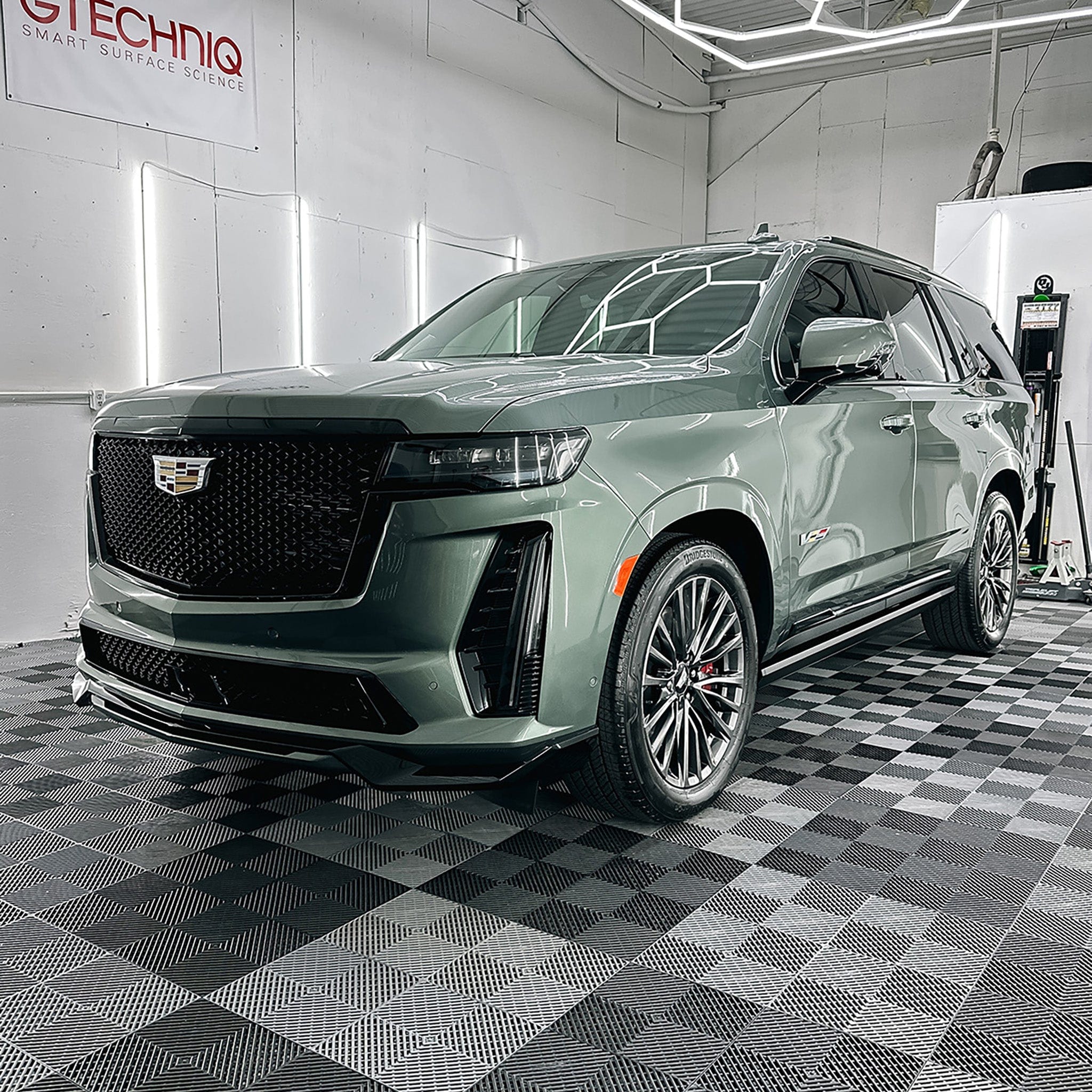Choose Conforti Auto and Marine Detailing Ceramic Coating for Expert Care
Choose Conforti Auto and Marine Detailing Ceramic Coating for Expert Care
Blog Article
Just How Outlining Porcelain Finish Boosts the Long Life of Your Vehicle's Paint
Ceramic finishing has emerged as a critical innovation in automobile outlining, offering a resilient service for preserving the stability of your automobile's paint. Understanding the details of exactly how ceramic layer works and its benefits over conventional wax can supply beneficial understandings for automobile proprietors.
What Is Ceramic Covering?
Comprehending the safety benefits of ceramic finish starts with recognizing its structure and functionality. Ceramic finish is a liquid polymer applied to the outside surfaces of lorries, mainly created to enhance and safeguard auto paint. The vital part of this layer is silicon dioxide (SiO2), which is stemmed from natural materials like sand. This substance forms a strong chemical bond with the factory paint, creating a safety layer that is both durable and hydrophobic.
The covering's application includes thorough preparation of the automobile's surface area, which have to be devoid of contaminants, scratches, and blemishes to guarantee optimal bond. Once applied, the ceramic layer remedies to develop a stiff shield that can endure numerous ecological variables, consisting of UV rays, chemical stains, and oxidation.
In addition, ceramic finishings are not just surface-level therapies; they pass through the paint to give a long lasting defense. This performance prolongs the life expectancy of the lorry's visual appeals while keeping its worth gradually. Understanding these fundamental facets of ceramic coating is essential for auto owners seeking efficient options for paint preservation and enhancement.
Advantages of Ceramic Covering
The benefits of ceramic layer extend far past its fundamental protective functions - Conforti Auto and Marine Detailing Ceramic Coating. Among one of the most substantial benefits is its ability to offer remarkable durability. Unlike typical wax or sealants, ceramic coatings create a solid bond with the auto's paint, enabling it to withstand environmental dangers such as UV rays, acid rain, and road salt. This durability significantly minimizes the danger of paint damage, preserving the lorry's aesthetic allure.
Furthermore, ceramic layers supply hydrophobic properties, implying they fend off water and pollutants. This characteristic not only makes the car less complicated to tidy but likewise lessens the regularity of washing, conserving both effort and time for automobile proprietors. The slick surface developed by the layer prevents dust and gunk from sticking, enhancing the car's overall cleanliness.
Additionally, ceramic finishes enhance the deepness and clearness of the paint, giving lorries a shiny finish that is visually striking. This visual enhancement further adds to maintaining the car's resale worth, as a well-kept exterior is a significant selling point for potential customers. Overall, the advantages of ceramic finish make it a rewarding investment for any person seeking to protect and boost their car's paintwork.
Just How Ceramic Layer Works

The covering's hydrophobic residential properties repel water and dirt, preventing the buildup of gunk on the surface area. This not just makes the automobile much easier to clean yet also reduces the likelihood of scratches and swirl marks brought on by traditional washing methods. Additionally, the ceramic layer acts as a guard versus UV rays, which can cause fading and oxidation with time.
Once treated, the covering exhibits remarkable resistance to chemicals, including roadway salts, bird droppings, and tree sap, which can or else harm the paint. The long life of ceramic coatings can last for a number of years, depending upon variables such as upkeep and environmental conditions. On the whole, the chemical bonding process of ceramic layers supplies a robust defense that keeps the stability and appearance of a lorry's paintwork.
Contrasting Ceramic Finish to Wax
Contrasting ceramic covering to typical wax reveals considerable differences in performance and long life. While both products intend to shield a lorry's paint, Learn More Here their compositions and resilience established them apart. Wax, usually made from all-natural carnauba or artificial materials, offers her explanation a short-term guard that normally lasts just a few weeks to a couple of months, depending on ecological problems and maintenance routines.
On the other hand, ceramic finishes are sophisticated services composed of not natural products that bond chemically with the automobile's paint. This produces a durable, semi-permanent layer of defense that can withstand for numerous years. Consequently, ceramic coatings offer exceptional resistance to UV rays, chemical stains, and physical abrasion, considerably minimizing the risk of oxidation and fading.
In addition, the hydrophobic homes of ceramic coatings guarantee that water beads up and rolls off the surface, making it a lot more tough for dust and gunk to stick. This ease of cleaning is a notable benefit over wax, which can attract dust and call for frequent reapplication. Ultimately, for auto proprietors seeking lasting protection and improved aesthetic allure, ceramic coverings offer an extra effective option to standard wax products.
Maintenance Tips for Longevity
Appropriate upkeep is necessary for optimizing the long life of a ceramic layer. Use a more information pH-balanced auto shampoo to protect against deteriorating the layer, and avoid automatic cars and truck cleans with severe brushes that can cause micro-scratches.
To preserve the hydrophobic residential or commercial properties of the ceramic finishing, consider using an upkeep spray or booster specifically made for ceramic finishes every couple of months. This will certainly reinforce the protective layer and improve water beading.
Furthermore, stay clear of exposing the coated surface area to extreme ecological problems whenever possible. Auto parking in shaded locations or utilizing a vehicle cover can stop UV damage and contamination from bird droppings, tree sap, or industrial results.
Lastly, evaluate the finish regularly for signs of wear or damage. If you discover a reduction in hydrophobic behavior, it might be time for a professional reapplication. By adhering to these maintenance pointers, vehicle owners can considerably expand the life and effectiveness of their ceramic layer, ensuring that their auto's paint remains secured and visually appealing for several years to come.
Final Thought

Report this page